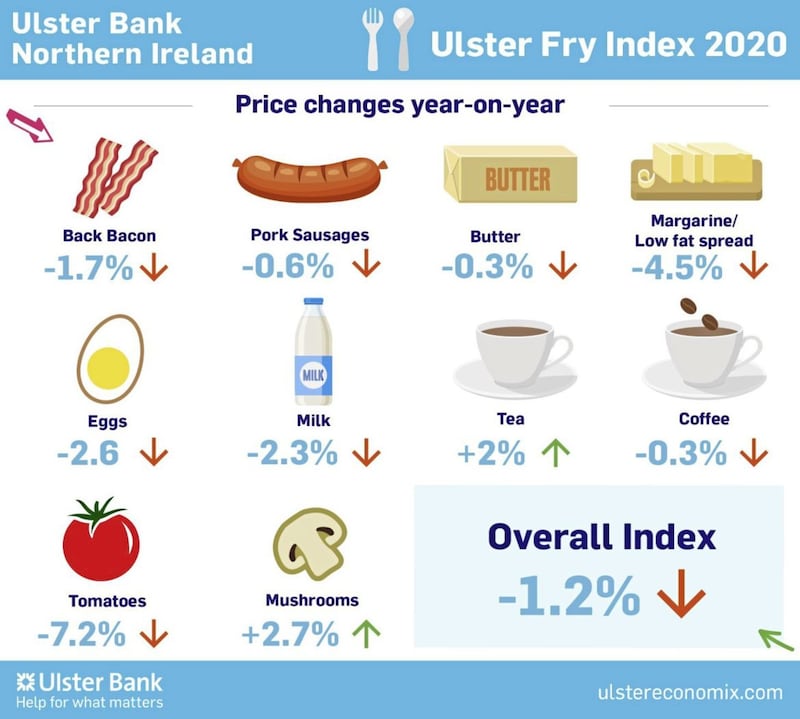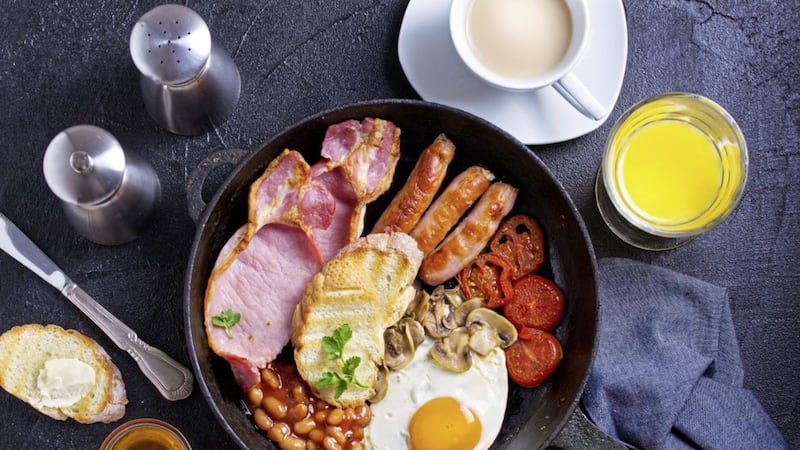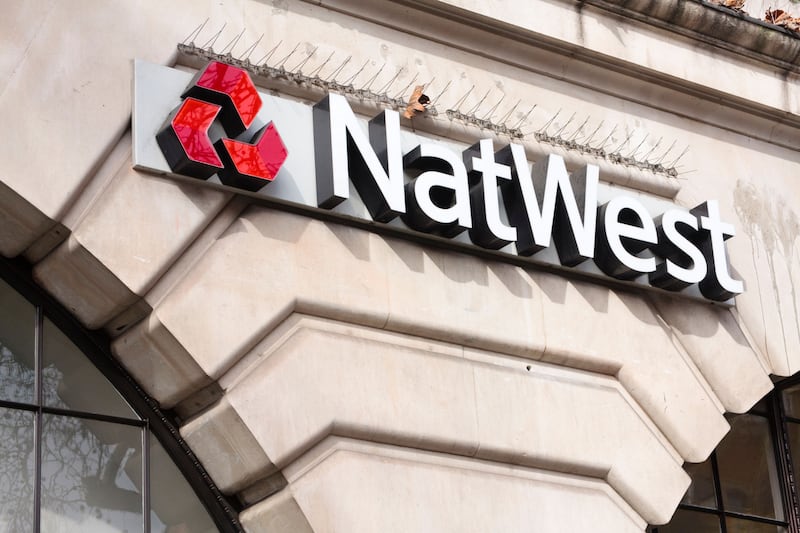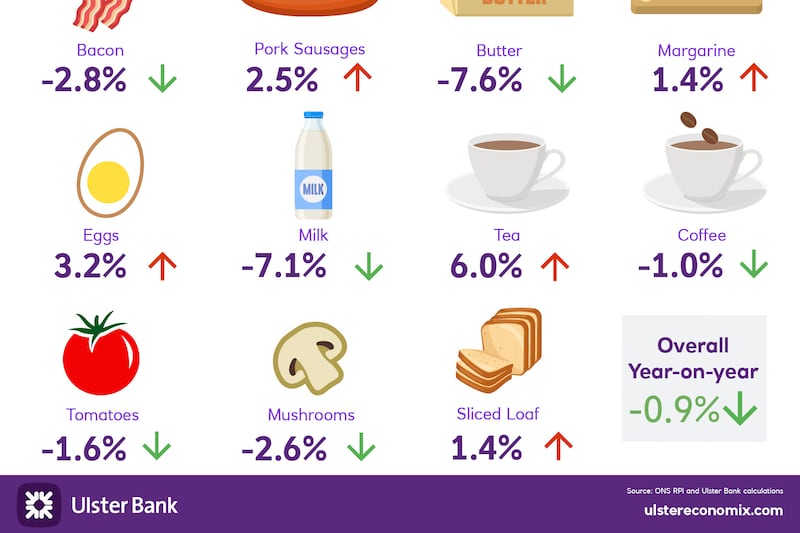THE overall cost of an Ulster fry fell again this year, but food prices look set to increase as a result of the impact of Covid-19.
The latest Ulster Fry Index, produced by Ulster Bank’s chief economist Richard Ramsey, found that consumers are in many cases enjoying lower prices for food, relative to last year.
The index is traditionally published in the build up to the Balmoral Show to highlight the role of inflation and agri-food in the local economy.
Although the farming showcase may be cancelled for 2020, Mr Ramsey said the latest index still provides food for thought on the industry.
“We have now seen two consecutive years of falls in the index, perhaps helping ease the pressure on consumers’ pockets. However, I suspect that trend won’t continue for a third year.”
According to the index, all but two items – mushrooms and tea – have fallen in the 12 months to March 2020, with the overall index down 1.2 percent in the same timeframe.
Tomatoes (-7.2 per cent) and margarine (-4.5 per cent) are the biggest fallers, with more modest decreases in the prices of butter, milk, sausages, back bacon and eggs. All prices are based on the latest figures from the ONS Retail Prices Index (RPI).
While the index has now fallen for two successive years, the long-term trend is upwards, said the economist. It’s now up 5.9 per cent in the last 10 years and 21 per cent since the last recession in 2008.
That curve is expected to grow sharper as a result of the rising costs facing food producers during the ongoing coronavirus crisis.
“As the food supply chain grapples with the impact of Covid-19, it faces increased costs to do so, including adapting working practices,” said Mr Ramsey.
“There is inevitability that these increased costs will find their way into the prices of the goods we buy.”
He also pointed out that the flipside to lower food prices is the impact on agri-businesses.
“The returns farmers have been achieving of late, particularly dairy and beef farmers, have reduced to below the cost of production. The Covid-19 situation has brought home to many the crucial importance of having a robust food supply chain, and the vital role of our local food producers, processors and suppliers in ensuring we have the items we need and want where and when we need them.
“As consumers, we perhaps need to understand that the current situation of farmers receiving below the cost of production isn’t sustainable long term, and taking all of the factors into consideration, it is likely that the Ulster Fry Index will only go one way in the year ahead.”








